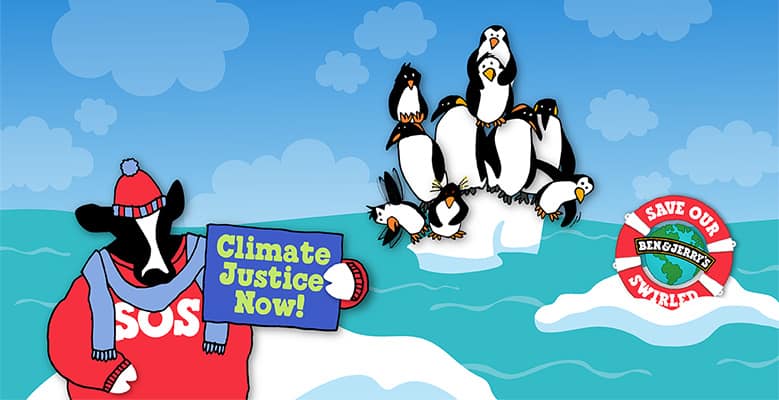October 22, 2015
We bet you’ve heard about the movement to prevent our planet from warming up more than 2 degrees Celsius, the temperature threshold for avoiding the worst impacts of climate change. The speed at which we’re approaching that level of warming is a main motivator to bringing the US and China to the table this November at the UN Climate Summit in Paris— where world leaders will hopefully agree on a plan to drastically cut carbon emissions caused by fossil fuels.
But what if we don’t stick to that plan? Here’s our list of the truly outsized impacts that burning all the fossil fuels available would have on our planet.

1. Antarctica will melt
Burning all of Earth’s fossil fuels would cement humanity’s role as a major shaper of the planet. Scientists now report that if we do just that, temperatures would rise to the point that the Antarctic ice sheet, which has been frozen for 15 million years, would entirely melt. And melting, we know, is as bad for the planet as it is for your pint of Cherry Garcia.
2. Sea levels will rise 200 feet
What happens when the world’s biggest ice sheet melts? Way more water. In the case of Antarctica, we’re talking 160 feet more. Add in ice on land, and the expansion of warmer ocean waters, and you’re talking sea levels increasing by 200 feet— enough to put land currently occupied by around 200 billion people underwater.
3. No more orange juice
When climate change starts to affect the most important meal of the day, then we’re in trouble for sure. Once most of Florida is covered by the Atlantic and the Gulf of Mexico, we’re talking about a complete lack of oranges and orange juice in the US. And if a world without orange juice isn’t a world you want to wake up to, then climate change action should be at the top of your to-do list.
4. We could easily sail around both poles
No more making circuitous detours to avoid seasonal, and permanent, ice in the North Pole. Shipping will be a cinch, and the waters might just be warm enough to take a dip— in the summer months, that is, when the sun is up all day long. From early October to late March, there’s no sun shining at all. So much for turning the top of our planet into a waterfront vacation destination.
5. No more mansions in the Hamptons
With sea levels rising by 200 feet, we’d also be ruining our chances to snoop on the celebrity homes in the Hamptons. From A-list actors to iconic crooners to media personalities, every celebrity with a fancy property in the Hamptons will see their home become public housing for fish and stars of the crustacean variety.
The upside is that scientists say these consequences won’t take place for around a thousand years. That may sound like a long time, but before their report, the same scientists expected that Antarctic melting would take around 10,000 years. The point is that global warming is accelerating to the level where we literally could alter the face of the planet for generations to come. What sort of legacy do we want to hand down? Let’s call for 100% renewable by 2050, make sure we keep fossil fuels in the ground, and keep our future from getting way too wet.
Recent Articles
Join The Climate Movement
-
With a landmark climate action agreement in place including commitments from 196 countries to fight climate change, now is the time to keep the pressure on and ensure swift action. This climate agreement wouldn’t have happened without millions of people around the world taking action. And we won’t be able to meet the ambitious goals of the Paris Agreement without millions and millions more people taking action in support of a rapid transition to clean energy. Paris was just the beginning, not the end. Let’s get to work towards a greener, cleaner future. Add your voice to the millions demanding action and sign the petition today!


